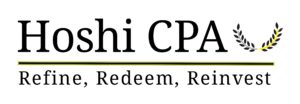Financial statements provide important information regarding a company’s financial health. It helps all stakeholders, including management, investors, and financial analysts, evaluate and make future financial decisions. For instance, an income statement, which is an essential element of a financial statement, shows how much revenue the company has generated and the amount it has spent on its expenses.
Financial audits review the financial statements to ensure that they are reasonably accurate. Here are five of its important elements:
#Component 1 – Preparation
It is the longest and the most crucial stage of an audit, which means you may need to devote additional time in advance. It may be a few months or a few weeks, depending on the complexity of financial records. To begin with, make sure that electronic records and financial statements are organized and easily accessible at all times. Now, conduct an account reconciliation for all assets, liabilities, and equity accounts. It makes sure that your account balances are correct. If the account reconciliation shows that an account balance is incorrect, adjust the account balance to match the supporting details.
#Component 2 – Stay informed about the latest updates in accounting standards
Every year, accounting procedures and legal and regulatory requirements are updated. Failing to take notice of such developments can cause serious problems during the financial audit. While some updates require minor changes, others may need you to spend considerable time to make changes. For instance, you may need to provide basic training to your financial personnel on new softwares. To stay up to date with the latest policies, visit the Financial Accounting Standards Board website.
#Component 3 – Analyze the company’s tax records
The IRS also requires you to maintain financial records for your business. You should keep tax records and receipts for three years. However, in some cases, you may need to keep it for seven years. To support items of income, deduction, or credit shown on your tax return, always keep receipts, bank statements, invoices, payroll records, and any other documents. The best practice of recordkeeping for small businesses is to keep as many records as possible.
#Component 4 – Learn from past audits
For a successful financial audit, try to learn from past mistakes. If you have struggled with a few things that went wrong during the last year’s audit, it’s time to revisit them and understand the issues. Make a list of issues that highlight the problems you faced and how you’ll address them in the current year. When meeting with the auditors, discuss the areas of improvement and talk about improving effective communication between the company and the auditors.
#Component 5 – Organize your data
Organizing your financial records helps save time and money. A practical approach to securing the audit data for review in subsequent years is to use sub-folders for categories and transaction cycles. On a basic level, classifying the data makes it easier to locate and retrieve. You can also tag data to make it easily searchable and trackable. It also helps maintain regulatory compliance and meet other business or personal objectives.
About Hoshi CPA, LLC
If you want to itemize deductions or avoid penalties, Hoshi CPA, LLC should be your one-stop destination. Udai Hoshi assists individuals, Japanese-speaking communities, and U.S. business owners with tax planning, tax compliance, tax resolution, and CFO professional services. You can talk to him for a tax consultation by booking a quick call, strategy session, consulting, or a CFO strategy session.
Udai is a professional accountant in Portland, Oregon. You can call us at (503) 388-6580 or drop an email at staff@hoshicpa.com to know more.









